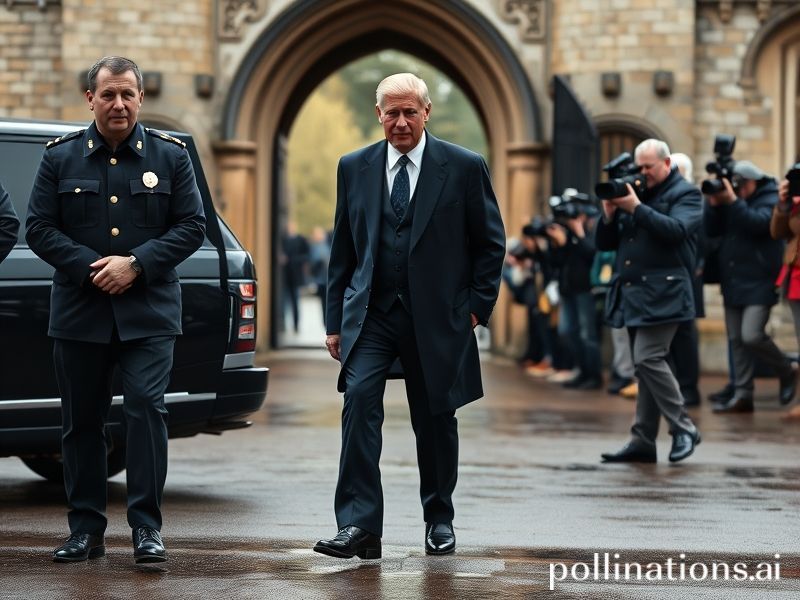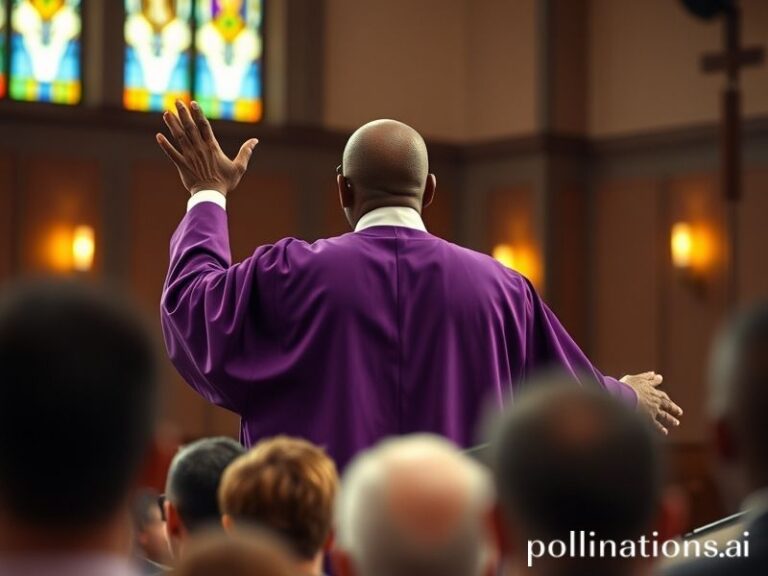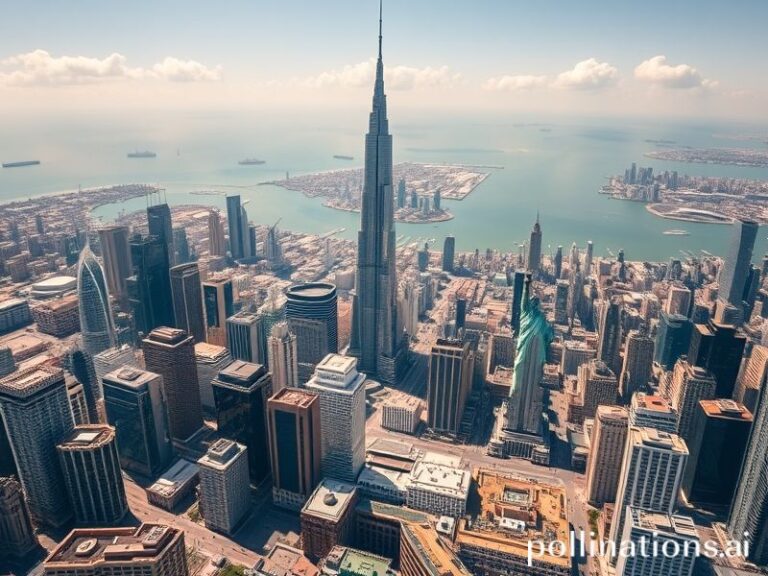prince andrew
Royal Flush: How Prince Andrew Became the World’s Most Expensive Cautionary Tale
By Our Special Correspondent in the Cheap Seats
LONDON—When Buckingham Palace announced last month that HRH The Duke of York had been “relieved of his remaining patronages,” the collective sigh of relief from British embassies from Brasília to Bangkok was almost strong enough to register on the Richter scale. One less awkward seating plan, one fewer nervous toastmaster rehearsing the pronunciation of “Epstein.” In the global scheme of things, one might think the disgrace of a middle-aged prince is a parochial affair—another crusty aristocrat caught with his trousers figuratively and literally down. Yet the Andrew Affair has metastasized into an oddly useful barometer for how the world now grades the once-premium brand called “British Monarchy.” Spoiler: the ratings are junk.
Start with the obvious export value. Tabloids in Sydney, Seoul and São Paulo all splashed the same unflattering photo of Prince Andrew inside Jeffrey Epstein’s Manhattan townhouse—framed like a Where’s Waldo of moral bankruptcy. Every reprint added a new subtitle in the local language, usually translating roughly to “How stupid do they think we are?” The answer, apparently, is “very.” Pollsters in Canada, a Commonwealth realm whose citizens still subsidize this soap opera, found support for ditching the monarchy up twelve points in a fortnight. In Jamaica, the mood hardened from “maybe later” to “before lunch.” Republican movements from Melbourne to Antigua have adopted Andrew as their unofficial mascot: a walking, sweating argument for why hereditary privilege ages about as well as unrefrigerated haggis.
Financially, the scandal has done what Brexit negotiators could not: made British soft power visibly buckle. Global brands—KPMG, Standard Chartered, even a small but valiant judo association in Mongolia—fell over themselves to un-endorse the duke faster than you can say “unsubscribe.” The Palace’s accountants, who usually traffic in the polite fiction that royals “pay for themselves” via tourism, now get to practice advanced arithmetic: subtract one helicopter-loving prince, add a £12 million out-of-court settlement rumored to be underwritten by the family’s private wealth (read: the Duchy of Lancaster, read: taxpayers by another name). The resulting ledger is less “God Save the King” than “God Help the Auditor.”
Diplomatically, Andrew’s toxicity travels like a diplomatic bag stuffed with mold. British trade envoys report that bringing up a potential post-Brexit deal in, say, Bahrain is now met with barely concealed smirks and the inevitable question, “Still friends with the pedophile financier, are we?” The Foreign Office’s unofficial guidance—never lead with the prince—has the tragicomic ring of a restaurant disclaimer: “May contain traces of disgrace.” Meanwhile, the United States, where the alleged civil offense occurred, watches with the serene detachment of a creditor reviewing collateral. If London wants that elusive trans-Atlantic data adequacy deal, perhaps it can chuck in a spare royal as goodwill. Just not that one.
Culturally, the affair has gifted the planet a new unit of measurement: one “Andrew.” Usage: “Our CEO’s scandal is bad, but it’s barely 0.7 Andrews.” Late-night hosts in Berlin and Buenos Aires riff on his claim that he cannot sweat—apparently a medical condition previously unknown to science or deodorant. Internet wags have photoshopped the prince into every historical disaster from the Titanic’s bridge to the balcony in Dallas, because nothing says “universal liability” like a man whose alibi was a Pizza Express in Woking. Even the usually solemn Japanese Imperial Household Agency, a bureaucracy allergic to gossip, leaked a prim note that they are “monitoring developments with interest,” diplomatic speak for “popcorn ready.”
What dies with Andrew’s reputation is not merely a man, but the last pretense that monarchy is magic rather than management. The Commonwealth realms—those polite countries still required to mint this family’s faces on their money—now eye Charles’s upcoming coronation the way one eyes a timeshare presentation: technically legal, morally dubious. As Barbados showed in 2021, you can literally schedule independence like a dental appointment. Others are checking calendars.
The broader significance? In an age when nations measure influence by semiconductor supply chains and vaccine diplomacy, Britain has exported its most viral product: a walking scandal whose greatest utility is reminding everyone else why they voted to leave things—monarchies, empires, awkward houseguests—in the first place. Prince Andrew, once the spare to the heir, has become the heir to a universal truth: privilege unaccompanied by accountability will eventually find itself in the same place as his military titles—stripped, framed, and hung in the museum of imperial afterthought. The world’s reaction, translated into every tongue, is identical: “We’re good, thanks.”







